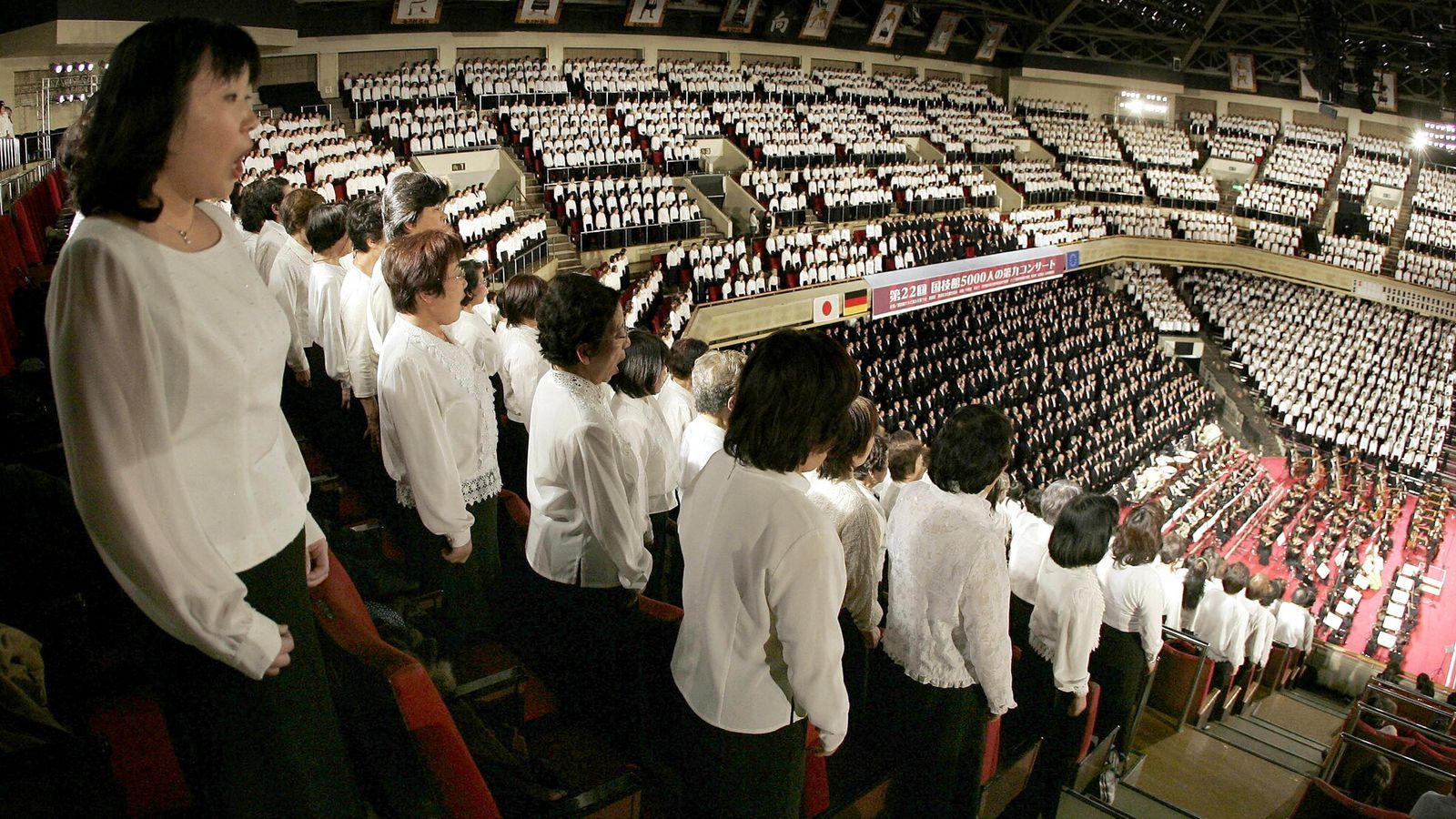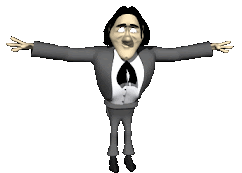Search This Blog
Thursday, January 31, 2013
Tuesday, January 29, 2013
Texting While Driving
Texting While Driving
How Dangerous Is It?
It's common these days for people to try to text message while they drive, but how dangerous is it. This infographic explains exactly how your driving is impaired when you text and drive and how likely you are to get into a serious accident if you do so. The final message is, "do not text and drive."
*
Monday, January 28, 2013
Sunday, January 27, 2013
English Translation: Men / Women
Men / Women
English Translation
WOMEN'S ENGLISH
Maybe = No
I'm sorry = You'll be sorry
We need = I want
It's your decision = The correct decision should be obvious
Do what you want = You'll pay for this later
We need to talk = I need to complain
Sure, go ahead = I don't want you to do that
I'm not upset = Of course I'm upset
You're so manly = You need a shave and you sweat a lot
Be romantic and turn out the lights = I have flabby thighs
This kitchen is so inconvenient = I want a new house
I want new curtains = I want new curtains, carpeting, furniture, and wallpaper
I heard a noise = I noticed you were almost asleep
Do you love me? = I want something expensive
How much do you love me? = I did something terrible today
I'll be ready in a minute = Kick off your shoes and find a good game on TV
You have to learn to communicate = Just agree with me

MEN'S ENGLISH
I'm sorry = You'll be sorry
We need = I want
It's your decision = The correct decision should be obvious
Do what you want = You'll pay for this later
We need to talk = I need to complain
Sure, go ahead = I don't want you to do that
I'm not upset = Of course I'm upset
You're so manly = You need a shave and you sweat a lot
Be romantic and turn out the lights = I have flabby thighs
This kitchen is so inconvenient = I want a new house
I want new curtains = I want new curtains, carpeting, furniture, and wallpaper
I heard a noise = I noticed you were almost asleep
Do you love me? = I want something expensive
How much do you love me? = I did something terrible today
I'll be ready in a minute = Kick off your shoes and find a good game on TV
You have to learn to communicate = Just agree with me

MEN'S ENGLISH
I'm hungry = I'm hungry
I'm sleepy = I'm sleepy
I'm tired = I'm tired
Do you want to go to a movie? = I'd like to have sex with you
Can I take you out to dinner? = I'd like to have sex with you
Can I call you sometime? = I'd like to have sex with you
May I have this dance? = I'd like to have sex with you
Nice dress! = Nice tits! Nice ass!
You look tense = I want to fondle you
What's wrong? = What self-inflicted psychological trauma is it this time?
What's wrong? = I'm guessing sex is out of the question
I'm bored = Would you like to have sex?
I love you = I'd like to make love right now
I love you, too = I really want to make love
Let's talk = I'd like to show you my emotional depth as a prelude to sex
Will you marry me? = I really enjoy having sex with you
I'm sleepy = I'm sleepy
I'm tired = I'm tired
Do you want to go to a movie? = I'd like to have sex with you
Can I take you out to dinner? = I'd like to have sex with you
Can I call you sometime? = I'd like to have sex with you
May I have this dance? = I'd like to have sex with you
Nice dress! = Nice tits! Nice ass!
You look tense = I want to fondle you
What's wrong? = What self-inflicted psychological trauma is it this time?
What's wrong? = I'm guessing sex is out of the question
I'm bored = Would you like to have sex?
I love you = I'd like to make love right now
I love you, too = I really want to make love
Let's talk = I'd like to show you my emotional depth as a prelude to sex
Will you marry me? = I really enjoy having sex with you
Libellés :
Humor,
Men - Women
Friday, January 25, 2013
Ode to Joy 🎼Beethoven 🇩🇪 10,000 🇯🇵 Japanese

10,000 Japanese Sing
Beethoven's Ninth Symphony
Ode an die Freude / Ode to Joy
歓喜に寄せて
👇 🇯🇵 🎼 🇩🇪 👇
The performance of "Daiku", "The Ninth", Beethoven's 9th Symphony with 10000 (amateur) chorus singers is a Japanese highlight every year in the end of December. Here is the last movement, recorded at the 2011 concert in Osaka, this year dedicated especially to the memory of the victims of the desastrous tsunami in March.Ludwig van Beethoven (1770-1827)
Symphony No. 9 in D minor, Op. 125 IV. Finale. Presto - Allegro assai - Allegro assai vivace (alla Marcia) - Andante maestoso - Adagio ma non troppo ma divoto - Allegro energico e sempre ben marcato - Allegro ma non tanto - Presto - Maestoso - Prestissimo
(with Chorus on Friedrich Schiller's "Ode an die Freude" / "Ode to Joy" / "歓喜に寄せて")
(with Chorus on Friedrich Schiller's "Ode an die Freude" / "Ode to Joy" / "歓喜に寄せて")
Keiko Yokoyama, soprano
Masako Teshima, mezzo-soprano
Satoshi Nishimura, tenor
Eijiro Kai, baritone
Choir of the 10000 from Osaka and Sendai
Suntory Orchestra of the 10000
Sendai Philharmonic Orchestra
Yutaka Sado, conductor
Recorded at Osaka-Jo Hall, Osaka / Miyagi Gauin Joshi Daigaku Hall, Sendai, 2011




Flashmob Flash Mob
Ode an die Freude ( Ode to Joy )
Beethoven Symphony No.9
Ode an die Freude ( Ode to Joy )
Beethoven Symphony No.9


.gif)
Monday, January 21, 2013
Saturday, January 19, 2013
Charles Baudelaire - Le Balcon
Charles Baudelaire
(1821-1867)
Le Balcon
Mère des souvenirs, maîtresse des maîtresses,
Ô toi, tous mes plaisirs! ô toi, tous mes devoirs!
Tu te rappelleras la beauté des caresses,
La douceur du foyer et le charme des soirs,
Mère des souvenirs, maîtresse des maîtresses.
Les soirs illuminés par l'ardeur du charbon,
Et les soirs au balcon, voilés de vapeur rose.
Que ton sein m'était doux! Que ton cœur m'était bon!
Nous avons dit souvent d'impérissables choses
Les soirs illuminés par l'ardeur du charbon.
Que les soleils sont beaux par les chaudes soirées!
Que l'espace est profond! que le cœur est puissant!
En me penchant vers toi, reine des adorées,
Je croyais respirer le parfum de ton sang.
Que les soleils sont beaux par les chaudes soirées!
La nuit s'épaississait ainsi qu'une cloison,
Et mes yeux dans le noir devinaient tes prunelles,
Et je buvais ton souffle. Ô douceur, ô poison!
Et tes pieds s'endormaient dans mes mains fraternelles,
La nuit s'épaississait ainsi qu'une cloison.
Je sais l'art d'évoquer les minutes heureuses,
Et revis mon passé blotti dans tes genoux.
Car à quoi bon chercher tes beautés langoureuses
Ailleurs qu'en ton cher corps et qu'en ton cœur si doux?
Je sais l'art d'évoquer les minutes heureuses!
Ces serments, ces parfums, ces baisers infinis.
Renaîtront-ils d'un gouffre interdit à nos sondes
Comme montent au ciel les soleils rajeunis
Après s'être lavés au fond des mers profondes
O serments! ô parfums! ô baisers infinis!
**************** ****************
http://fleursdumal.org/poem/133
**************** ****************
Libellés :
Books / Literature,
French,
Poetry
Friday, January 18, 2013
Relieve Sinus Pressure with Acupressure
~~~*~~~
Relieve Sinus Pressure with Acupressure
For a picture 'cheat sheet' visit:
Lindsay Rose from Lindsay Rose Holistic Health.com demonstrates the exact pressure points that relieve sinus pressure and tension, that often result in sinus headaches.
A step by step guide, quickly demonstrated.
Lindsay Rose assists clients in her holistic health practice to relieve sinus related tension through Acupressure, Shiatsu Therapy, Bowen Therapy and Reiki & Energetic Healing.
*
*
*
Acupressure Therapy :
Acupressure Points for Sinus Pressure
Sinus pressure can be treated with acupressure by stimulating a point under the nose in an upward direction.
Discover the acupressure points for sinus pressure with tips from a doctor of Oriental medicine in this free video on traditional Chinese medicine.
Expert: Mark Brinson
Contact: www.naturalseminars.com
Bio: Mark Brinson owns Brinson Therapeutics. He specializes in pain, injury and human performance and is also an international seminar provider.
Filmmaker: Christopher Rokosz
~~~*~~~
Libellés :
Educational,
Health,
How to,
Medical,
Science & Technology
Thursday, January 17, 2013
The 2nd Amendment Ratified to Preserve Slavery
The Second Amendment
was Ratified
to Preserve Slavery
The real reason the Second Amendment was ratified was to preserve the
slave patrol militias in the southern states, which was necessary to get
Virginia's vote.
Tuesday, 15 January 2013
By Thom Hartmann, Truthout
The real reason the Second Amendment was ratified, and why it says "State" instead of "Country" (the Framers knew the difference - see the 10th Amendment), was to preserve the slave patrol militias in the southern states, which was necessary to get Virginia's vote. Founders Patrick Henry, George Mason, and James Madison were totally clear on that . . . and we all should be too.
In the beginning, there were the militias. In the South, they were also called the "slave patrols," and they were regulated by the states.
In Georgia, for example, a generation before the American Revolution, laws were passed in 1755 and 1757 that required all plantation owners or their male white employees to be members of the Georgia Militia, and for those armed militia members to make monthly inspections of the quarters of all slaves in the state. The law defined which counties had which armed militias and even required armed militia members to keep a keen eye out for slaves who may be planning uprisings.
As Dr. Carl T. Bogus wrote for the University of California Law Review in 1998, "The Georgia statutes required patrols, under the direction of commissioned militia officers, to examine every plantation each month and authorized them to search 'all Negro Houses for offensive Weapons and Ammunition' and to apprehend and give twenty lashes to any slave found outside plantation grounds."
It's the answer to the question raised by the character played by Leonardo DiCaprio in Django Unchained when he asks, "Why don't they just rise up and kill the whites?" If the movie were real, it would have been a purely rhetorical question, because every southerner of the era knew the simple answer:
Well regulated militias kept the slaves in chains.
Sally E. Haden, in her book Slave Patrols: Law and Violence in Virginia and the Carolinas, notes that, "Although eligibility for the Militia seemed all-encompassing, not every middle-aged white male Virginian or Carolinian became a slave patroller." There were exemptions so "men in critical professions" like judges, legislators and students could stay at their work. Generally, though, she documents how most southern men between ages 18 and 45 - including physicians and ministers - had to serve on slave patrol in the militia at one time or another in their lives.
And slave rebellions were keeping the slave patrols busy.
By the time the Constitution was ratified, hundreds of substantial slave uprisings had occurred across the South. Blacks outnumbered whites in large areas, and the state militias were used to both prevent and to put down slave uprisings. As Dr. Bogus points out, slavery can only exist in the context of a police state, and the enforcement of that police state was the explicit job of the militias.
If the anti-slavery folks in the North had figured out a way to disband - or even move out of the state - those southern militias, the police state of the South would collapse. And, similarly, if the North were to invite into military service the slaves of the South, then they could be emancipated, which would collapse the institution of slavery, and the southern economic and social systems, altogether.
These two possibilities worried southerners like James Monroe, George Mason (who owned over 300 slaves) and the southern Christian evangelical, Patrick Henry (who opposed slavery on principle, but also opposed freeing slaves).
Their main concern was that Article 1, Section 8 of the newly-proposed Constitution, which gave the federal government the power to raise and supervise a militia, could also allow that federal militia to subsume their state militias and change them from slavery-enforcing institutions into something that could even, one day, free the slaves.
This was not an imagined threat. Famously, 12 years earlier, during the lead-up to the Revolutionary War, Lord Dunsmore offered freedom to slaves who could escape and join his forces. "Liberty to Slaves" was stitched onto their jacket pocket flaps. During the War, British General Henry Clinton extended the practice in 1779. And numerous freed slaves served in General Washington's army.
Thus, southern legislators and plantation owners lived not just in fear of their own slaves rebelling, but also in fear that their slaves could be emancipated through military service.
At the ratifying convention in Virginia in 1788, Henry laid it out:
"Let me here call your attention to that part [Article 1, Section 8 of the proposed Constitution] which gives the Congress power to provide for organizing, arming, and disciplining the militia, and for governing such part of them as may be employed in the service of the United States. . . .
"By this, sir, you see that their control over our last and best defence is unlimited. If they neglect or refuse to discipline or arm our militia, they will be useless: the states can do neither . . . this power being exclusively given to Congress. The power of appointing officers over men not disciplined or armed is ridiculous; so that this pretended little remains of power left to the states may, at the pleasure of Congress, be rendered nugatory."
George Mason expressed a similar fear:
"The militia may be here destroyed by that method which has been practised in other parts of the world before; that is, by rendering them useless, by disarming them. Under various pretences, Congress may neglect to provide for arming and disciplining the militia; and the state governments cannot do it, for Congress has an exclusive right to arm them [under this proposed Constitution] . . . "
Henry then bluntly laid it out:
"If the country be invaded, a state may go to war, but cannot suppress [slave] insurrections [under this new Constitution]. If there should happen an insurrection of slaves, the country cannot be said to be invaded. They cannot, therefore, suppress it without the interposition of Congress . . . . Congress, and Congress only [under this new Constitution], can call forth the militia."
And why was that such a concern for Patrick Henry?
"In this state," he said, "there are two hundred and thirty-six thousand blacks, and there are many in several other states. But there are few or none in the Northern States. . . . May Congress not say, that every black man must fight? Did we not see a little of this last war? We were not so hard pushed as to make emancipation general; but acts of Assembly passed that every slave who would go to the army should be free."
Patrick Henry was also convinced that the power over the various state militias given the federal government in the new Constitution could be used to strip the slave states of their slave-patrol militias. He knew the majority attitude in the North opposed slavery, and he worried they'd use the Constitution to free the South's slaves (a process then called "Manumission").
The abolitionists would, he was certain, use that power (and, ironically, this is pretty much what Abraham Lincoln ended up doing):
"They will search that paper [the Constitution], and see if they have power of manumission," said Henry. "And have they not, sir? Have they not power to provide for the general defence and welfare? May they not think that these call for the abolition of slavery? May they not pronounce all slaves free, and will they not be warranted by that power?
"This is no ambiguous implication or logical deduction. The paper speaks to the point: they have the power in clear, unequivocal terms, and will clearly and certainly exercise it."
He added: "This is a local matter, and I can see no propriety in subjecting it to Congress."
James Madison, the "Father of the Constitution" and a slaveholder himself, basically called Patrick Henry paranoid.
"I was struck with surprise," Madison said, "when I heard him express himself alarmed with respect to the emancipation of slaves. . . . There is no power to warrant it, in that paper [the Constitution]. If there be, I know it not."
Patrick Henry even argued that southerner's "property" (slaves) would be lost under the new Constitution, and the resulting slave uprising would be less than peaceful or tranquil:
"In this situation," Henry said to Madison, "I see a great deal of the property of the people of Virginia in jeopardy, and their peace and tranquility gone."
So Madison, who had (at Jefferson's insistence) already begun to prepare proposed amendments to the Constitution, changed his first draft of one that addressed the militia issue to make sure it was unambiguous that the southern states could maintain their slave patrol militias.
His first draft for what became the Second Amendment had said: "The right of the people to keep and bear arms shall not be infringed; a well armed, and well regulated militia being the best security of a free country [emphasis mine]: but no person religiously scrupulous of bearing arms, shall be compelled to render military service in person."
But Henry, Mason and others wanted southern states to preserve their slave-patrol militias independent of the federal government. So Madison changed the word "country" to the word "state," and redrafted the Second Amendment into today's form:
"A well regulated Militia, being necessary to the security of a free State [emphasis mine], the right of the people to keep and bear Arms, shall not be infringed."
Little did Madison realize that one day in the future weapons-manufacturing corporations, newly defined as "persons" by a Supreme Court some have called dysfunctional, would use his slave patrol militia amendment to protect their "right" to manufacture and sell assault weapons used to murder schoolchildren.
In the beginning, there were the militias. In the South, they were also called the "slave patrols," and they were regulated by the states.
In Georgia, for example, a generation before the American Revolution, laws were passed in 1755 and 1757 that required all plantation owners or their male white employees to be members of the Georgia Militia, and for those armed militia members to make monthly inspections of the quarters of all slaves in the state. The law defined which counties had which armed militias and even required armed militia members to keep a keen eye out for slaves who may be planning uprisings.
As Dr. Carl T. Bogus wrote for the University of California Law Review in 1998, "The Georgia statutes required patrols, under the direction of commissioned militia officers, to examine every plantation each month and authorized them to search 'all Negro Houses for offensive Weapons and Ammunition' and to apprehend and give twenty lashes to any slave found outside plantation grounds."
It's the answer to the question raised by the character played by Leonardo DiCaprio in Django Unchained when he asks, "Why don't they just rise up and kill the whites?" If the movie were real, it would have been a purely rhetorical question, because every southerner of the era knew the simple answer:
Well regulated militias kept the slaves in chains.
Sally E. Haden, in her book Slave Patrols: Law and Violence in Virginia and the Carolinas, notes that, "Although eligibility for the Militia seemed all-encompassing, not every middle-aged white male Virginian or Carolinian became a slave patroller." There were exemptions so "men in critical professions" like judges, legislators and students could stay at their work. Generally, though, she documents how most southern men between ages 18 and 45 - including physicians and ministers - had to serve on slave patrol in the militia at one time or another in their lives.
And slave rebellions were keeping the slave patrols busy.
By the time the Constitution was ratified, hundreds of substantial slave uprisings had occurred across the South. Blacks outnumbered whites in large areas, and the state militias were used to both prevent and to put down slave uprisings. As Dr. Bogus points out, slavery can only exist in the context of a police state, and the enforcement of that police state was the explicit job of the militias.
If the anti-slavery folks in the North had figured out a way to disband - or even move out of the state - those southern militias, the police state of the South would collapse. And, similarly, if the North were to invite into military service the slaves of the South, then they could be emancipated, which would collapse the institution of slavery, and the southern economic and social systems, altogether.
These two possibilities worried southerners like James Monroe, George Mason (who owned over 300 slaves) and the southern Christian evangelical, Patrick Henry (who opposed slavery on principle, but also opposed freeing slaves).
Their main concern was that Article 1, Section 8 of the newly-proposed Constitution, which gave the federal government the power to raise and supervise a militia, could also allow that federal militia to subsume their state militias and change them from slavery-enforcing institutions into something that could even, one day, free the slaves.
This was not an imagined threat. Famously, 12 years earlier, during the lead-up to the Revolutionary War, Lord Dunsmore offered freedom to slaves who could escape and join his forces. "Liberty to Slaves" was stitched onto their jacket pocket flaps. During the War, British General Henry Clinton extended the practice in 1779. And numerous freed slaves served in General Washington's army.
Thus, southern legislators and plantation owners lived not just in fear of their own slaves rebelling, but also in fear that their slaves could be emancipated through military service.
At the ratifying convention in Virginia in 1788, Henry laid it out:
"Let me here call your attention to that part [Article 1, Section 8 of the proposed Constitution] which gives the Congress power to provide for organizing, arming, and disciplining the militia, and for governing such part of them as may be employed in the service of the United States. . . .
"By this, sir, you see that their control over our last and best defence is unlimited. If they neglect or refuse to discipline or arm our militia, they will be useless: the states can do neither . . . this power being exclusively given to Congress. The power of appointing officers over men not disciplined or armed is ridiculous; so that this pretended little remains of power left to the states may, at the pleasure of Congress, be rendered nugatory."
George Mason expressed a similar fear:
"The militia may be here destroyed by that method which has been practised in other parts of the world before; that is, by rendering them useless, by disarming them. Under various pretences, Congress may neglect to provide for arming and disciplining the militia; and the state governments cannot do it, for Congress has an exclusive right to arm them [under this proposed Constitution] . . . "
Henry then bluntly laid it out:
"If the country be invaded, a state may go to war, but cannot suppress [slave] insurrections [under this new Constitution]. If there should happen an insurrection of slaves, the country cannot be said to be invaded. They cannot, therefore, suppress it without the interposition of Congress . . . . Congress, and Congress only [under this new Constitution], can call forth the militia."
And why was that such a concern for Patrick Henry?
"In this state," he said, "there are two hundred and thirty-six thousand blacks, and there are many in several other states. But there are few or none in the Northern States. . . . May Congress not say, that every black man must fight? Did we not see a little of this last war? We were not so hard pushed as to make emancipation general; but acts of Assembly passed that every slave who would go to the army should be free."
Patrick Henry was also convinced that the power over the various state militias given the federal government in the new Constitution could be used to strip the slave states of their slave-patrol militias. He knew the majority attitude in the North opposed slavery, and he worried they'd use the Constitution to free the South's slaves (a process then called "Manumission").
The abolitionists would, he was certain, use that power (and, ironically, this is pretty much what Abraham Lincoln ended up doing):
"They will search that paper [the Constitution], and see if they have power of manumission," said Henry. "And have they not, sir? Have they not power to provide for the general defence and welfare? May they not think that these call for the abolition of slavery? May they not pronounce all slaves free, and will they not be warranted by that power?
"This is no ambiguous implication or logical deduction. The paper speaks to the point: they have the power in clear, unequivocal terms, and will clearly and certainly exercise it."
He added: "This is a local matter, and I can see no propriety in subjecting it to Congress."
James Madison, the "Father of the Constitution" and a slaveholder himself, basically called Patrick Henry paranoid.
"I was struck with surprise," Madison said, "when I heard him express himself alarmed with respect to the emancipation of slaves. . . . There is no power to warrant it, in that paper [the Constitution]. If there be, I know it not."
But the southern fears wouldn't go away.
Patrick Henry even argued that southerner's "property" (slaves) would be lost under the new Constitution, and the resulting slave uprising would be less than peaceful or tranquil:
"In this situation," Henry said to Madison, "I see a great deal of the property of the people of Virginia in jeopardy, and their peace and tranquility gone."
So Madison, who had (at Jefferson's insistence) already begun to prepare proposed amendments to the Constitution, changed his first draft of one that addressed the militia issue to make sure it was unambiguous that the southern states could maintain their slave patrol militias.
His first draft for what became the Second Amendment had said: "The right of the people to keep and bear arms shall not be infringed; a well armed, and well regulated militia being the best security of a free country [emphasis mine]: but no person religiously scrupulous of bearing arms, shall be compelled to render military service in person."
But Henry, Mason and others wanted southern states to preserve their slave-patrol militias independent of the federal government. So Madison changed the word "country" to the word "state," and redrafted the Second Amendment into today's form:
"A well regulated Militia, being necessary to the security of a free State [emphasis mine], the right of the people to keep and bear Arms, shall not be infringed."
Little did Madison realize that one day in the future weapons-manufacturing corporations, newly defined as "persons" by a Supreme Court some have called dysfunctional, would use his slave patrol militia amendment to protect their "right" to manufacture and sell assault weapons used to murder schoolchildren.
President Obama Proposes Gun Legislation
NRA Goes Avant-Garde
ATF Searches for a Full-Time Director.
(06:08)
Libellés :
Educational,
News,
Politics,
Video
Wednesday, January 16, 2013
Photo Manipulation
Photo Manipulation
Before Photoshop
*
Before Photoshop
Man on Rooftop with Eleven Men in Formation
on His Shoulders
Date: c1930
on His Shoulders
Date: c1930
Unknown, American
Date: ca. 1930
Medium: Gelatin silver print
Dimensions: Image: 34.5 x 27.2 cm (13 9/16 x 10 11/16 in.) Frame: 57.2 x 47 cm (22 1/2 x 18 1/2 in.)
Classification: Photographs
Credit Line: George Eastman House, International Museum of Photography and Film, Rochester
SEE MORE PHOTOS HERE:
The First Major Exhibition Devoted to History of Manipulated Photography Before Digital Age Opens at Metropolitan Museum in New York October 11, 2012—January 27, 2013
For more information please visit:
http://www.metmuseum.org/about-the-museum/press-room/exhibitions/2012/faking-it
 Photo Manipulation Before Photoshop:
Photo Manipulation Before Photoshop:http://twentytwowords.com/2012/08/16/photo-manipulation-before-photoshop-10-pictures/
 15 Photo Manipulations Before the Digital Agehttp://twistedsifter.com/2012/09/photo-manipulations-before-digital-age-photoshop/
15 Photo Manipulations Before the Digital Agehttp://twistedsifter.com/2012/09/photo-manipulations-before-digital-age-photoshop/ Faking It: Life Before Photoshop
Faking It: Life Before Photoshophttp://abcnews.go.com/blogs/headlines/2012/10/faking-it-life-before-photoshop/
*
 FAKING IT: Manipulated Photography Before Photoshop at The Met
FAKING IT: Manipulated Photography Before Photoshop at The Met
http://elizabethavedon.blogspot.com/2012/10/faking-it-manipulated-photography.html
ALSO VIEW:
Faking It: The Show
Libellés :
Art,
Illusions,
Photography,
Science & Technology
Tuesday, January 15, 2013
FRONTLINE: Inside Obama’s Presidency
FRONTLINE
Inside Obama’s Presidency

As Barack Obama is sworn in for his second term, FRONTLINE takes a probing look at the first four years of his presidency.
On the night of Barack Obama’s inauguration,
a group of top GOP luminaries quietly gathered in a Washington steakhouse to develop plans for taking on the new president.
*
Video*
*
Transcript - Inside Obama’s Presidency
http://www.pbs.org/wgbh/pages/frontline/government-elections-politics/inside-obamas-presidency/transcript-36/
*
Libellés :
Educational,
News,
Politics,
Video
Subscribe to:
Comments (Atom)

























